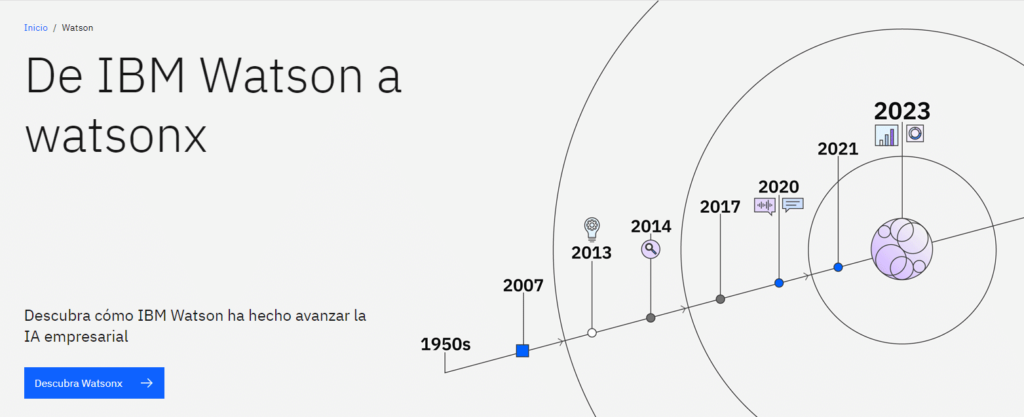The growing importance of data in the business world has led many organizations to seek out vendors that offer effective solutions for collecting, analyzing and visualizing information. As companies compete to stay relevant, data quality and accessibility are more critical than ever. Against this backdrop, we will explore the top five data vendors in 2025, highlighting their unique features and how they can drive business growth.
Top 5 Data Providers to Power Your Business in 2025

1. ENIGMIA
ENIGMIA stands out as a leader in the field of data collection and analysis. Its innovative approach combines artificial intelligence and cyber intelligence to deliver relevant and actionable data to its clients. With a platform designed to adapt to diverse industries, ENIGMIA has positioned itself as an indispensable tool for strategic decision making.
Characteristics:
- Predictive Analytics: It uses advanced algorithms to forecast future trends and behaviors, helping companies anticipate market changes.
- Customization: The solutions are customizable to the specific needs of each client, allowing for a more direct and efficient approach to data collection.
- Real Time Data Access: The ability to instantly access up-to-date data allows companies to react quickly to changing situations and adjust their strategies on the fly.
Benefits:
- Improved Decision Making: With accurate, real-time data, companies can make more informed decisions based on concrete analysis rather than assumptions.
- Increased Operational Efficiency: Automating data collection and analysis processes allows organizations to devote more resources to critical tasks that require human attention.
Why choose ENIGMIA?
- Broad CoverageWe connect more than 30% of the Spanish population, analyzing 16 million mobile lines and 5 million homes, generating more than 5,000 million daily navigations.
- Valuable InsightsWe leverage socio-demographic and behavioral data to provide you with a comprehensive view of your audience, helping you to personalize your marketing strategies.
- Real Time Analysis: Delves into digital behavior, analyzing information consumption and purchases, both in retrospect and in real time.
- Precise LocationWe measure the location of audiences and people traffic, optimizing your business strategies with geospatial data.
- Efficient IntegrationOur standardized datasets and API solutions facilitate comprehensive, real-time analysis.
Discover the potential of your data!
Join our ENIGMIA and wear your marketing strategy y audience profiling to the next level with artificial intelligence. With our tool, you will better understand your customers and maximize your results. Start now and transform your data into power!
2. IBM Watson

IBM Watson is known for its advanced analytics and natural language processing capabilities. This platform is particularly useful for companies looking to extract meaningful insights from large volumes of textual data, such as customer comments, social media posts and business documents.
Characteristics:
- AI and Machine Learning: It provides tools that help companies identify patterns in complex data, enabling a deeper understanding of consumer behaviors.
- Multichannel Integration: Watson can integrate data from different sources, facilitating more holistic and relevant analysis.
- Sentiment Analysis: This feature allows companies to measure brand perception through the evaluation of online opinions and comments.
Benefits:
- Continuous Innovation: The platform is constantly updated with new features and enhancements, ensuring that users have access to the latest technology.
- Flexibility in the application: IBM Watson's adaptability makes it ideal for diverse industries, from healthcare to finance, providing a versatile framework.
An insurance firm that used IBM Watson to analyze customer claims increased its customer satisfaction rate by 25% by implementing changes based on sentiment analysis.
Google Cloud BigQuery
Google Cloud BigQuery is a cloud-based data warehousing and analytics solution that enables companies to quickly query huge data sets. This service is particularly valuable for organizations that need to process and analyze data on a large scale.
Characteristics:
- Scalable Storage: BigQuery is designed to handle petabytes of data, making it a robust option for companies that handle large volumes of information.
- Friendly User Interface: The intuitive interface allows non-technical users to perform queries and visualizations without the need for advanced programming skills.
- Integration with other Google Services: Synergy with other Google tools, such as Google Analytics and Google Data Studio, provides a more efficient and cohesive workflow.
Benefits:
- Cost-effectiveness: BigQuery offers flexible pricing options, allowing companies to pay only for the data they process, which can be more economical compared to other solutions.
- Processing Speed: Response times to queries are extremely fast, improving operational efficiency and enabling more agile decisions.
An e-commerce giant used BigQuery to analyze buying patterns and managed to increase sales by 15% in just three months after implementing changes to its marketing strategy based on the data obtained.
▶ You may be interested: Audience building for effective marketing campaigns
4. Microsoft Azure Data Lake
Azure Data Lake is a comprehensive solution designed for the collection, storage and analysis of large volumes of data in a secure and scalable environment. Ideal for companies looking for a robust solution for their data needs.
Characteristics:
- Hierarchical Storage: It allows users to organize their data in a logical manner, facilitating access and manipulation of information.
- Integrated Analysis Tools: Azure includes tools that allow complex analysis to be performed without the need to move data to other systems, saving time and resources.
- Advanced Security: The platform offers multiple layers of security to protect sensitive data, which is especially critical for regulated industries.
Benefits:
- Efficiency in Data Analysis: Users can perform advanced analysis without hassle, improving the speed of response to business needs.
- Enhanced Collaboration: Azure facilitates teamwork by enabling secure data sharing between departments and teams.
A telecommunications company used Azure Data Lake to consolidate data from different sources and was able to optimize its customer service, reducing response time to queries by 40%.
5. Dun & Bradstreet
Dun & Bradstreet specializes in providing commercial and credit data, offering companies valuable information for risk assessment and business opportunities. Its extensive database is used by many organizations to make informed decisions about business relationships.
Characteristics:
- Comprehensive Database: Access to an extensive database of companies and their financial history, enabling organizations to assess the strength of their potential partners.
- Risk Analysis: Tools designed to assess the financial health of other companies and anticipate potential risks in business relationships.
- Market Insights: It provides information on market trends and growth opportunities, enabling companies to position themselves strategically.
Benefits:
- Risk Minimization: It helps companies make more informed decisions about who to do business with, thereby reducing the risk of non-payment and business relationship failures.
- Identification of Opportunities: It facilitates the identification of new business opportunities and emerging markets, which can lead to significant growth.
Case Study: A logistics company used Dun & Bradstreet data to evaluate its trading partners and was able to reduce its operating costs by 20% by eliminating high-risk trading relationships.
Conclusions
The choice of a data provider can have a significant impact on a company's ability to operate efficiently and effectively. Each of the above vendors offers unique features and benefits that can transform the way companies manage and use their data. From robust warehousing and analytics solutions to business-critical data, these five suppliers are top choices in 2025.
By implementing one of these platforms, organizations can not only improve their decision making, but also optimize their operations and stay competitive in an ever-changing business environment. The key is to identify which of these solutions best aligns with your specific business needs and make the most of the available data.





